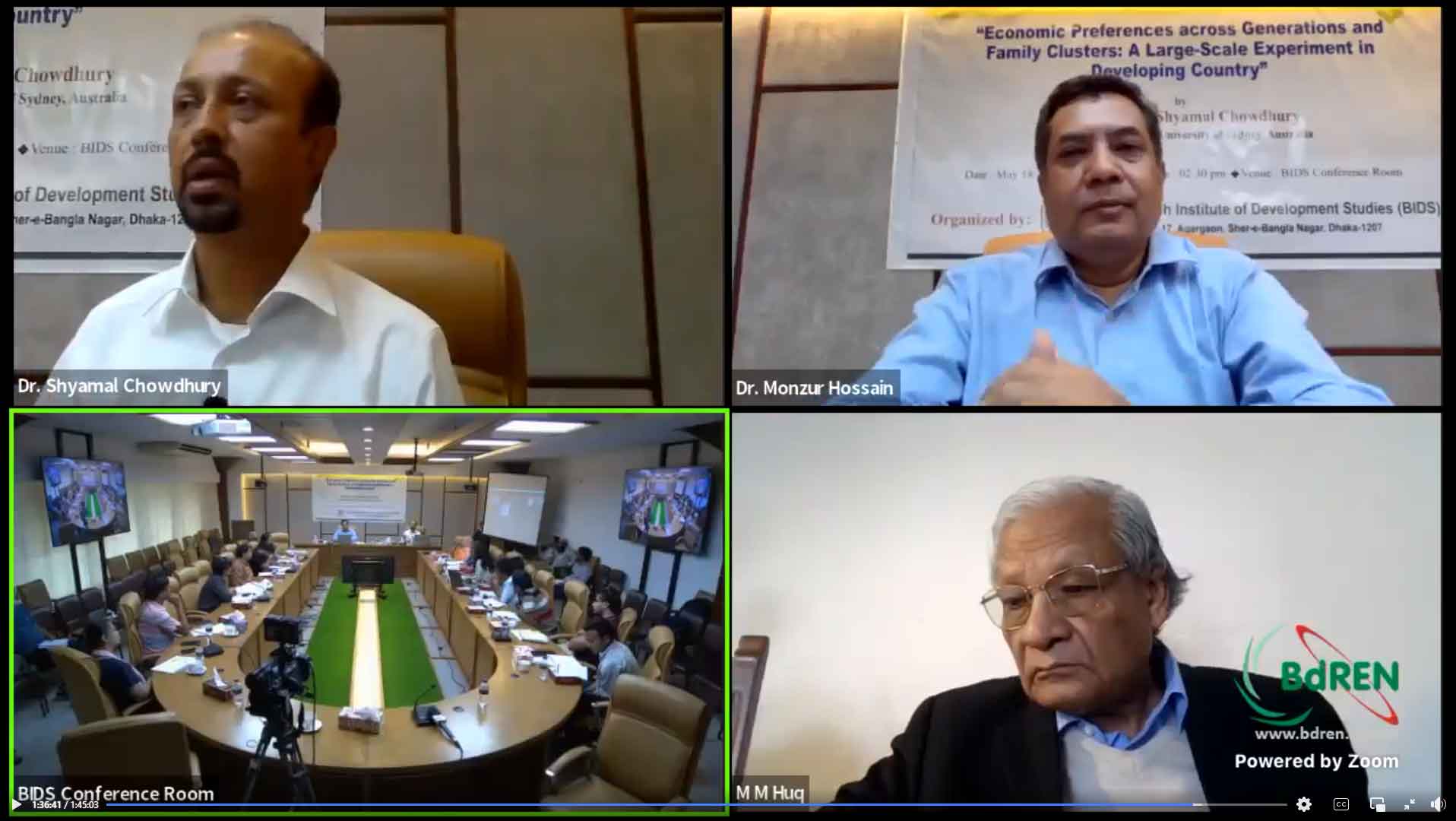
Economic Preferences across Generations and Family Clusters: A Large-Scale Experiment in Developing Country
Bangladesh Institute of Development Studies (BIDS) organized a seminar titled “Economic Preferences across Generations and Family Clusters: A Large-Scale Experiment in Developing Country” on May 18, 2022 in the BIDS Conference room. Professor Shyamal Chowdhury, School of Economics, University of Sydney presented his research on this topic. The seminar was held in hybrid format.
This paper looked at the intergenerational persistence of economic preferences in Bangladesh and presented the result from an experiment with 542 families drawn from four districts in Bangladesh where economic preferences were elicited 542 pairs of husbands and wives and of their 907 children, yielding a total of 1,991 individual participants. Three dimensions of economic preferences were measured in this experiment- time, risk and social preferences- in a unified and incentivized context to examine the participants at the individual but also at the family level.
In their empirical analysis, the authors of this paper found that, husbands and wives preferences are significantly and positively correlated to each other most of the time, i.e, for risk and time preferences and partly for the social preferences. Professor Chowdhury noted that, in terms of social preferences, 10 per cent of parents and children are selfless, less than 10 per cent of mothers and more than 20 per cent of fathers are egalitarian and approximately 17 per cent of the children are egalitarian. Besides the experimental elicitation of economic preferences, this paper has a rich set of additional controls, such as personality traits, and socio‐demographic background data.
The seminar was attended by BIDS researchers, academics and media. Dr. Monzur Hossain, Research Director, BIDS chaired the seminar.
